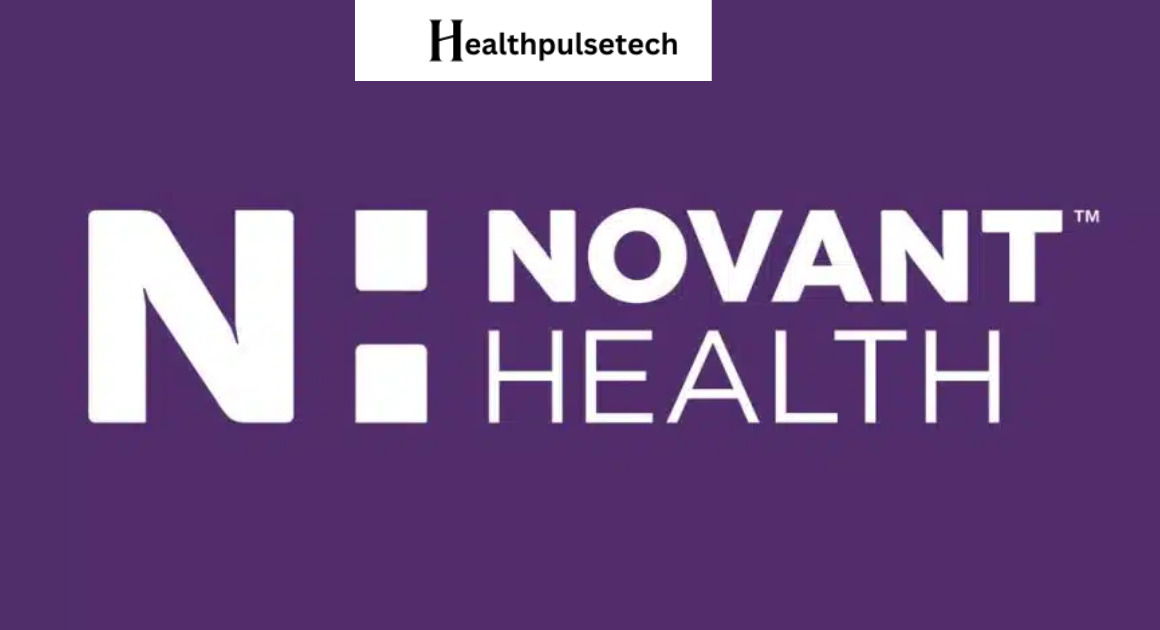In recent years, Google has expanded its influence beyond the realms of internet search and advertising into various other sectors, including healthcare. The company’s foray into healthcare, known as Google Health, is aimed at revolutionizing the way health information is managed, accessed, and utilized. Google Health’s mission is to organize the world’s health information and make it universally accessible and useful, thereby empowering individuals, healthcare professionals, and organizations with the tools and insights needed to improve health outcomes. This article delves into the multifaceted dimensions of Google Health, its initiatives, the technologies it leverages, and the potential impact on the healthcare industry.
1. The Genesis of Google Health
Google Health’s journey began in the late 2000s when Google first attempted to create a personal health record (PHR) service. The initial version, launched in 2008, allowed users to store and manage their health information online. However, due to privacy concerns, lack of user adoption, and interoperability issues with existing healthcare systems, Google discontinued the service in 2011. Despite this setback, the lessons learned from this early attempt laid the groundwork for future endeavors.
In 2018, Google reintroduced its healthcare initiatives under the rebranded Google Health. This new phase was marked by a more comprehensive approach, integrating advanced technologies such as artificial intelligence (AI), machine learning (ML), and big data analytics to address complex health challenges.
2. Key Initiatives and Projects
Google Health’s initiatives span a wide range of areas, including medical research, clinical decision support, patient data management, and public health. Some of the most notable projects include:
A. Artificial Intelligence in Healthcare
Google has invested heavily in AI and ML to develop tools that can assist in diagnosing diseases, predicting patient outcomes, and personalizing treatment plans. One of the flagship projects is the development of AI algorithms for medical imaging. Google Health has collaborated with various medical institutions to create AI models that can detect conditions such as diabetic retinopathy, lung cancer, and breast cancer from medical images with high accuracy. These tools not only augment the capabilities of radiologists but also have the potential to improve early diagnosis and treatment outcomes.
B. EHR Integration and Interoperability
Electronic Health Records (EHRs) are a cornerstone of modern healthcare, but they often suffer from fragmentation and interoperability issues. Google Health aims to address these challenges by developing solutions that can seamlessly integrate with existing EHR systems. By leveraging the Google Cloud Healthcare API, Google Health facilitates the secure exchange of health data between different systems, enhancing the continuity of care and reducing administrative burdens on healthcare providers.
C. Health Information Platforms
Google Health has also focused on creating platforms that provide comprehensive health information to users. One such platform is the Google Health Studies app, which allows users to participate in health research studies by contributing their data. This app not only democratizes health research but also enables researchers to collect large datasets that are crucial for understanding disease patterns and developing new treatments.
D. Fitness and Wellness
Recognizing the importance of preventive healthcare, Google Health has integrated with various fitness and wellness platforms. For example, Google Fit, an activity tracking app, encourages users to stay active by setting personalized fitness goals and tracking their progress. Additionally, Google’s acquisition of Fitbit in 2019 has expanded its capabilities in the wearable fitness market, providing users with detailed health metrics and insights to support a healthy lifestyle.
3. The Role of Google Cloud in Healthcare
Google Cloud plays a pivotal role in supporting Google Health’s initiatives. By providing a robust, scalable, and secure infrastructure, Google Cloud enables healthcare organizations to store, manage, and analyze vast amounts of health data. Key features of Google Cloud relevant to healthcare include:
A. Data Security and Privacy
Healthcare data is highly sensitive, and protecting it is of paramount importance. Google Cloud complies with major healthcare regulations such as HIPAA (Health Insurance Portability and Accountability Act) in the United States, ensuring that health data is stored and processed securely. Advanced security features such as encryption, access controls, and auditing help safeguard patient information.
B. Big Data Analytics
The ability to analyze large datasets is critical for advancing medical research and improving patient care. Google Cloud’s big data tools, such as BigQuery, allow researchers and healthcare providers to perform complex analyses on health data, uncovering insights that can lead to better clinical outcomes. For instance, by analyzing trends in patient data, healthcare providers can identify risk factors for certain conditions and develop targeted prevention strategies.
C. Machine Learning and AI
Google Cloud offers a suite of ML and AI tools that empower healthcare organizations to develop predictive models, automate routine tasks, and enhance clinical decision-making. TensorFlow, Google’s open-source ML framework, is widely used in healthcare research for developing algorithms that can analyze medical images, predict disease progression, and personalize treatment plans.
4. Ethical and Privacy Considerations
As Google Health expands its reach, ethical and privacy considerations remain at the forefront. The collection, storage, and analysis of health data raise several ethical issues, including informed consent, data ownership, and the potential for bias in AI algorithms.
A. Informed Consent and Data Ownership
Ensuring that users are fully informed about how their health data will be used and obtaining their explicit consent is crucial. Google Health emphasizes transparency in its data practices, providing users with clear information about data usage and obtaining consent before collecting data. Additionally, Google Health advocates for the principle that individuals should own their health data and have control over how it is shared.
B. Algorithmic Bias
AI algorithms can inadvertently perpetuate biases present in the training data, leading to disparities in healthcare outcomes. To mitigate this risk, Google Health is committed to developing and validating its AI models using diverse datasets. By including data from various populations, the aim is to ensure that AI tools provide equitable and accurate results across different demographic groups.
C. Data Privacy
Protecting the privacy of health data is paramount. Google Health adheres to stringent data privacy standards and employs advanced security measures to safeguard user information. This includes using encryption to protect data in transit and at rest, implementing access controls to restrict who can access data, and regularly auditing security practices to identify and address potential vulnerabilities.
5. Collaborations and Partnerships
Google Health recognizes that collaboration is essential for driving innovation in healthcare. By partnering with academic institutions, healthcare providers, and other technology companies, Google Health aims to leverage collective expertise and resources to tackle complex health challenges.
A. Academic Partnerships
Google Health collaborates with leading academic institutions to conduct cutting-edge research and develop new healthcare technologies. These partnerships facilitate the exchange of knowledge and resources, enabling researchers to explore novel approaches to diagnosing, treating, and preventing diseases.
B. Healthcare Providers
Partnering with healthcare providers allows Google Health to pilot its technologies in real-world clinical settings. These collaborations provide valuable insights into how Google Health’s tools can be integrated into existing workflows, enhancing their usability and effectiveness.
C. Industry Collaborations
By working with other technology companies, Google Health can develop interoperable solutions that enhance the functionality and connectivity of healthcare systems. For example, Google’s partnership with Apple on the “COVID-19 Exposure Notifications” initiative demonstrated the potential of cross-industry collaboration in addressing public health crises.
6. The Future of Google Health
Looking ahead, Google Health is poised to play an increasingly influential role in shaping the future of healthcare. Key areas of focus include:
A. Precision Medicine
By leveraging AI and big data, Google Health aims to advance precision medicine, which tailors medical treatment to the individual characteristics of each patient. This approach holds the promise of more effective treatments with fewer side effects, as therapies are customized based on genetic, environmental, and lifestyle factors.
B. Global Health
Google Health is also committed to addressing global health challenges, particularly in low- and middle-income countries. By providing scalable health solutions and leveraging mobile technologies, Google Health seeks to improve access to quality care and address disparities in health outcomes.
C. Continued Innovation
Innovation remains at the core of Google Health’s mission. Ongoing research and development efforts focus on creating new AI algorithms, improving data interoperability, and enhancing user experiences. By staying at the forefront of technological advancements, Google Health aims to continuously improve healthcare delivery and outcomes.
Conclusion
Google Health represents a bold vision for the future of healthcare, one where technology empowers individuals and healthcare providers with the tools and insights needed to achieve better health outcomes. Through its innovative use of AI, ML, big data analytics, and cloud computing, Google Health is addressing some of the most pressing challenges in healthcare today. While ethical and privacy considerations must be carefully navigated, the potential benefits of Google Health’s initiatives are immense. As Google Health continues to evolve and expand its impact, it has the potential to transform healthcare into a more connected, data-driven, and patient-centric industry, ultimately improving the health and well-being of people around the world.



